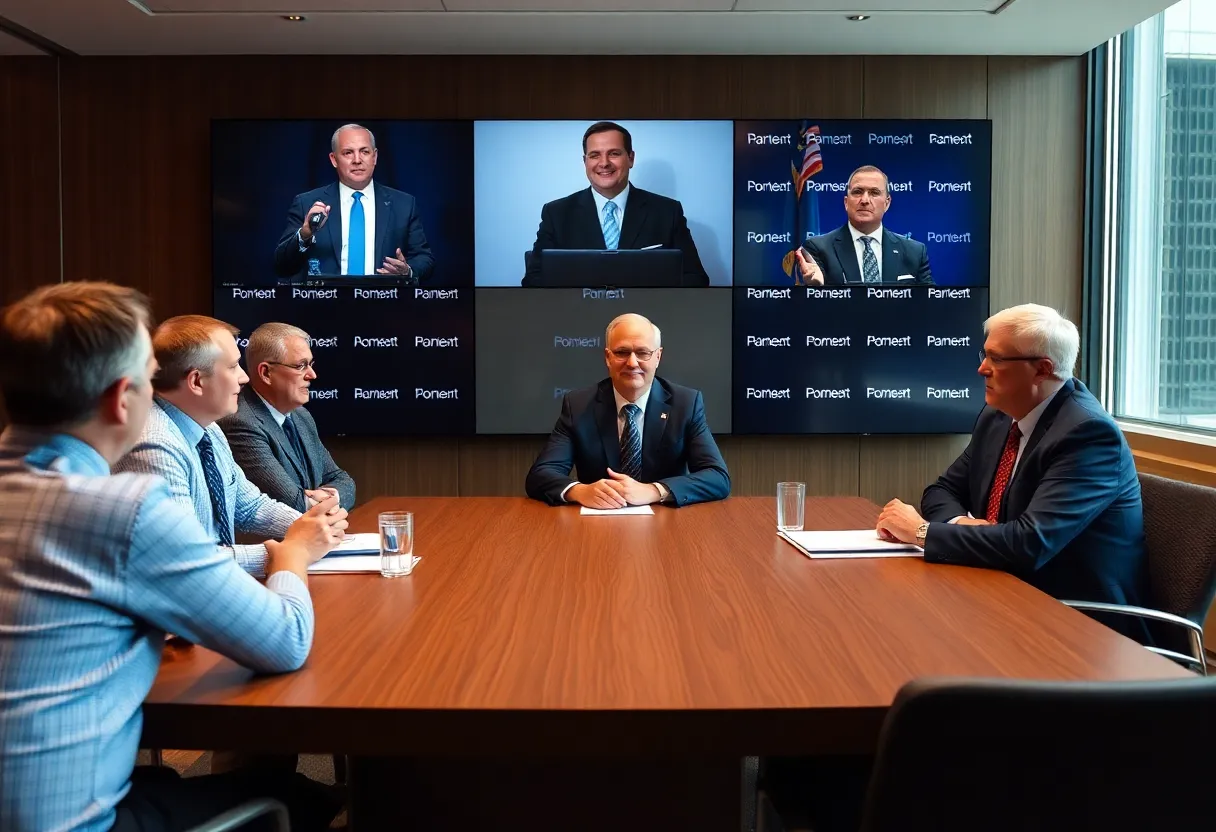News Summary
Commissioners from major college sports conferences discussed the House v. NCAA settlement’s impact on college athletics. A $20.5 million fund for athletes will start distributing on July 1, bringing opportunities and challenges in resource allocation. The establishment of the College Sports Commission aims to oversee compliance concerning Name, Image, Likeness deals, amidst concerns over enforcement and potential cheating. While these changes seek to enhance integrity, lingering financial pressures pose challenges in ensuring transparency and accountability in the evolving landscape of college sports.
Indianapolis, IN – Commissioners from major college sports conferences convened via remote news conference to discuss the implications of the House v. NCAA settlement, which has generated substantial changes in college athletics. Participants in the conference included Tony Petitti and Jim Phillips from the Atlantic Coast Conference (ACC), Greg Sankey from the Southeastern Conference (SEC), Brett Yormark from the Big 12 Conference, and Teresa Gould from the Pacific-12 Conference.
The settlement stems from a lawsuit that identified several prominent conferences and the NCAA as defendants. As part of the agreement, $20.5 million will be allocated to athletes starting July 1. However, allocation decisions regarding these funds will be made at individual campuses rather than at the conference level, creating a new paradigm in the distribution of resources to student-athletes.
During the conference, commissioners discussed the uncertainties that loom in the “post-settlement” landscape. They acknowledged the absence of immediate solutions aimed at establishing enforcement rules and compliance within college sports. Concerns regarding the potential for ongoing cheating were prevalent, suggesting that the integrity of college athletics may still be at risk despite the new frameworks being introduced.
To tackle these challenges, a newly established body, the College Sports Commission (CSC), will oversee compliance regarding NIL (Name, Image, Likeness) deals. This commission will be led by Bryan Seeley, a former investigator for Major League Baseball. As part of the newly implemented guidelines, athletes engaging in NIL deals must now report any contracts worth at least $600 through a special platform named NIL Go, designed by Deloitte.
If NIL Go rejects a contract, athletes can choose to revise the agreement, resubmit it for evaluation, or pursue arbitration. Schools will have the enforcement authority concerning NIL Go, creating an additional layer of accountability for student-athletes. However, if an athlete proceeds with a contract viewed as invalid, they face substantial risks due to the enforcement measures available to both the commission and their respective schools.
The CSC aims to eliminate the practice of donor collectives allegedly paying players without transparency regarding expectations. Nonetheless, doubts persist that pay-for-play schemes will not reemerge in some capacity. The challenge of monitoring donors across various schools and conferences remains a significant hurdle for the CSC as it works to ensure compliance.
In addition to these developments, the commissioners have been in dialogue with campus officials to enhance compliance and restore order in college athletics amid growing financial pressures. The overarching goal of the settlement and the accompanying structures is to bolster the integrity of college sports, even as financial concerns linger in the background.
As the landscape of college athletics continues to evolve, these significant changes are intended to balance the interests of student-athletes while ensuring an ethical framework for competition. The outcome of the CSC’s efforts in monitoring NIL deals and enforcing compliance will be crucial to shaping the future of college sports.
The settlement has raised expectations for transparency and accountability in a world where the rights of athletes are increasingly recognized. However, the path to achieving these ideals appears fraught with challenges that require collaborative efforts from all stakeholders involved in college athletics.
Deeper Dive: News & Info About This Topic
HERE Resources
Rady Children’s Invitational Basketball Tournament Moves Venues
Additional Resources
- USD Athletics to Partner with Paciolan for Enhanced Ticketing Solutions
- UC San Diego Honors Best at 2025 Triton Awards
- Power Conferences Create NIL Enforcement Arm
- Rookie Clarke Makes Another Spectacular Catch
- Kyla Bruhn to Represent Big West on NCAA National Student-Athlete Advisory Committee
- Wikipedia: College athletics in the United States
- Google Search: College Sports News
- Google Scholar: NIL deals in college sports
- Encyclopedia Britannica: NCAA
- Google News: NIL Enforcement in College Athletics
Author: STAFF HERE CORONADO
The Coronado Staff Writer represents the experienced team at HERECoronado.com, your go-to source for actionable local news and information in Coronado, San Diego County, and beyond. Specializing in "news you can use," we cover essential topics like product reviews for personal and business needs, local business directories, politics, real estate trends, neighborhood insights, and state news affecting the area—with deep expertise drawn from years of dedicated reporting and strong community input, including local press releases and business updates. We deliver top reporting on high-value events such as the Coronado Island Film Festival, productions at Lamb’s Players Theatre, community workshops at John D. Spreckels Center, and iconic celebrations at Hotel del Coronado. Our coverage extends to key organizations like the Coronado Chamber of Commerce and Visit Coronado, plus leading businesses in hospitality, dining, and tourism that drive the local economy. As part of the broader HERE network, including HERESanDiego.com, HEREHuntingtonBeach.com, HERELongBeach.com, and HERELosAngeles.com, we provide comprehensive, credible insights into Southern California's dynamic landscape.


